Introduction to Smart Home Technology
Smart home technology refers to a suite of devices and systems that connect to the internet, allowing users to control and monitor home functions remotely. This burgeoning technology has gained significant traction due to its ability to enhance daily life across various dimensions, including convenience, security, and energy efficiency. The integration of smart devices opens a myriad of possibilities, making homes not just more functional but also attuned to the needs of contemporary living.
One of the most significant advantages of smart home technology is its capacity to provide unparalleled convenience. Homeowners can manage appliances, lighting, heating, and security from the touch of a smartphone or a handheld device, enabling a seamless transition from one task to another without the inconvenience of manual adjustments. This level of automation allows individuals to lead more efficient lives, saving both time and effort.
Moreover, how smart devices enhance home security is a crucial aspect of their appeal. With the ability to install smart locks, doorbell cameras, and alarm systems that can be monitored in real-time, families can enjoy peace of mind knowing that their homes are safeguarded against intrusions. These smart security features are linked to a comprehensive network that not only alerts homeowners about potential threats but can also enable remote surveillance when they are away.
The importance of energy-efficient smart devices cannot be overstated either. By optimizing the consumption of energy, these gadgets contribute not only to lower utility bills but also promote environmentally friendly practices. Homeowners can integrate their smart devices with energy management systems, allowing for real-time tracking and control of energy usage. As the trend toward sustainability grows, these systems become indispensable tools in our quest for a greener future.
In the coming sections, we will delve into specific devices that further exemplify the transformative potential of smart home technology, shining a light on how they can elevate our living experiences.
Top 10 Smart Devices for a Futuristic Home
In the quest to create a futuristic home, incorporating smart devices can drastically alter the living experience. Here are the top 10 smart devices that can enhance your home by improving convenience, efficiency, and security.
1. Smart Thermostats: Smart thermostats optimize heating and cooling systems according to your lifestyle. They can learn your schedule, adjust temperatures automatically, and provide energy consumption insights, thus helping you save on utility bills.
CLICK HERE FOR DEALS ON SMARTHOME THERMO STARTS
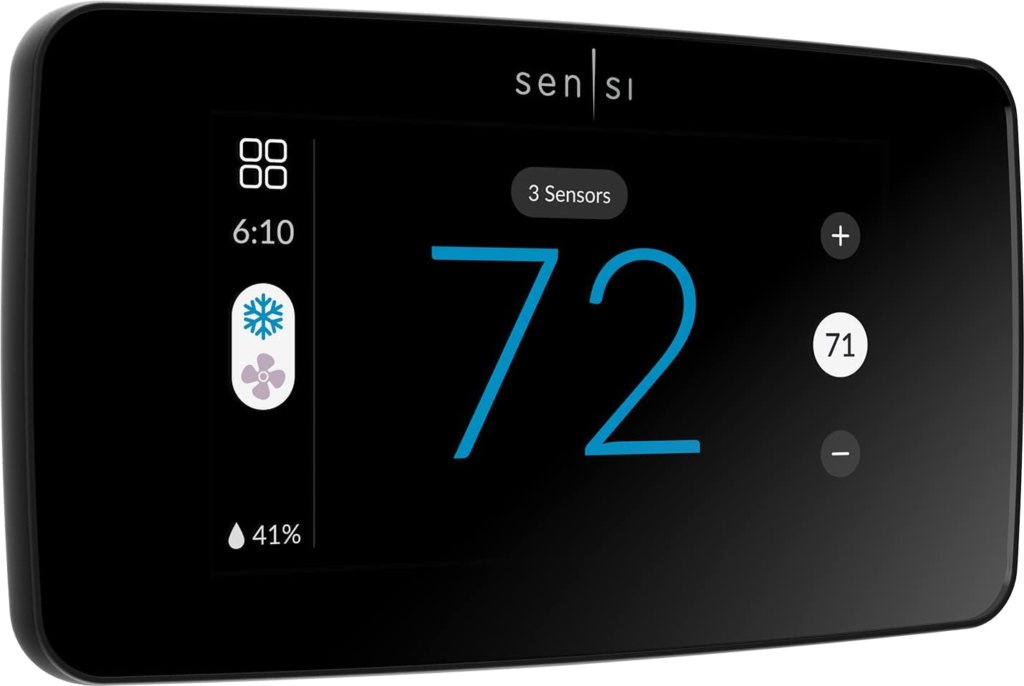
https://amzn.to/3YF90Pz2. Smart Lighting Systems: These systems allow you to control your home’s lighting remotely. You can customize the brightness and color of lights, set schedules, and even control them via voice commands. This not only enhances convenience but also increases energy efficiency.
CLICK HERE FOR DEALS ON SMART LIGHTING SYSTEM

3. Robotic Vacuum Cleaners: Robotic vacuum cleaners provide an autonomous cleaning solution, allowing you to maintain a clean living space without the manual effort. They can be programmed to clean at specific times and can navigate around furniture, thus exemplifying how smart devices enhance home security by minimizing dust accumulation.
AMAZON: CLICK HERE FOR SMART VACUUM CLEANERS
TEMU: CLICK HERE FOR VACUUM CLEANER

4. Smart Speakers: Smart speakers function as a central hub for all other smart devices. With voice-activated assistants, they can play music, manage schedules, and control other devices, offering a fully integrated smart home experience. CLICK HERE FOR DEALS PN SMART SPEAKERS
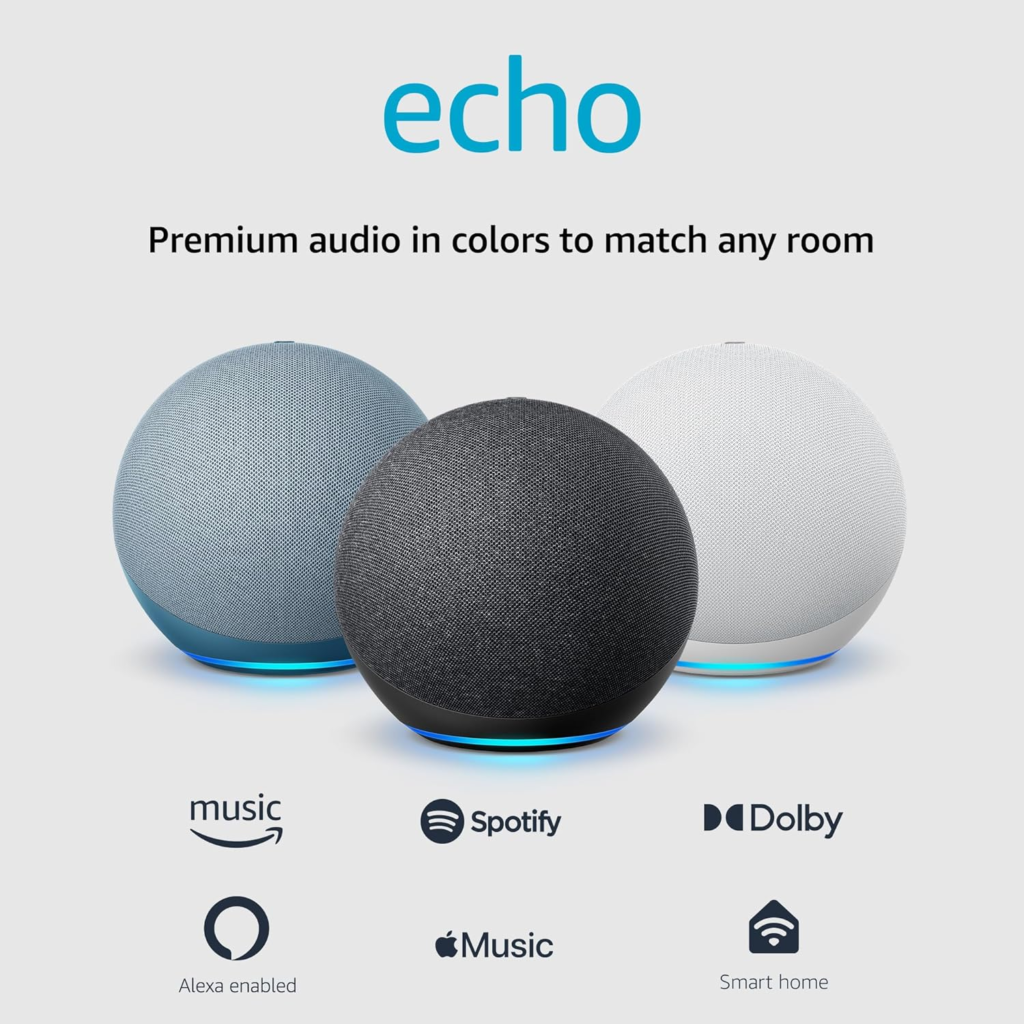
5. Home Security Cameras: These cameras help monitor your property with real-time video access via mobile devices. Some models come with AI features, such as facial recognition, making it easier to identify potential threats and enhancing your home’s security.
CLICK HERE FOR DEALS ON SMART CAMERAS
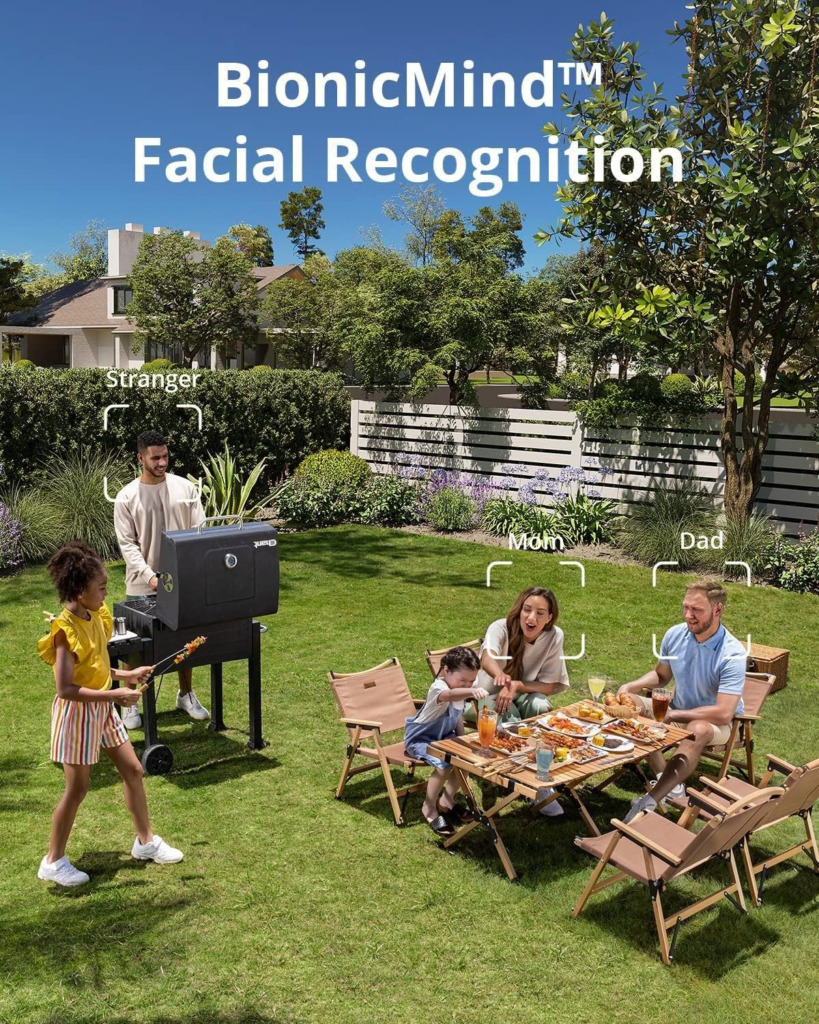
6. Smart Doorbells: Smart doorbells with video capabilities enable you to see and communicate with visitors remotely. This added layer of security is invaluable in today’s world.
CLICK HERE FOR SMART DOORBELL

7. Smart Locks: These locks allow for keyless entry via smartphones or biometrics. They can provide temporary access codes for guests, ensuring that your home remains secure.
CLICK HERE FOR SMART LOCKS
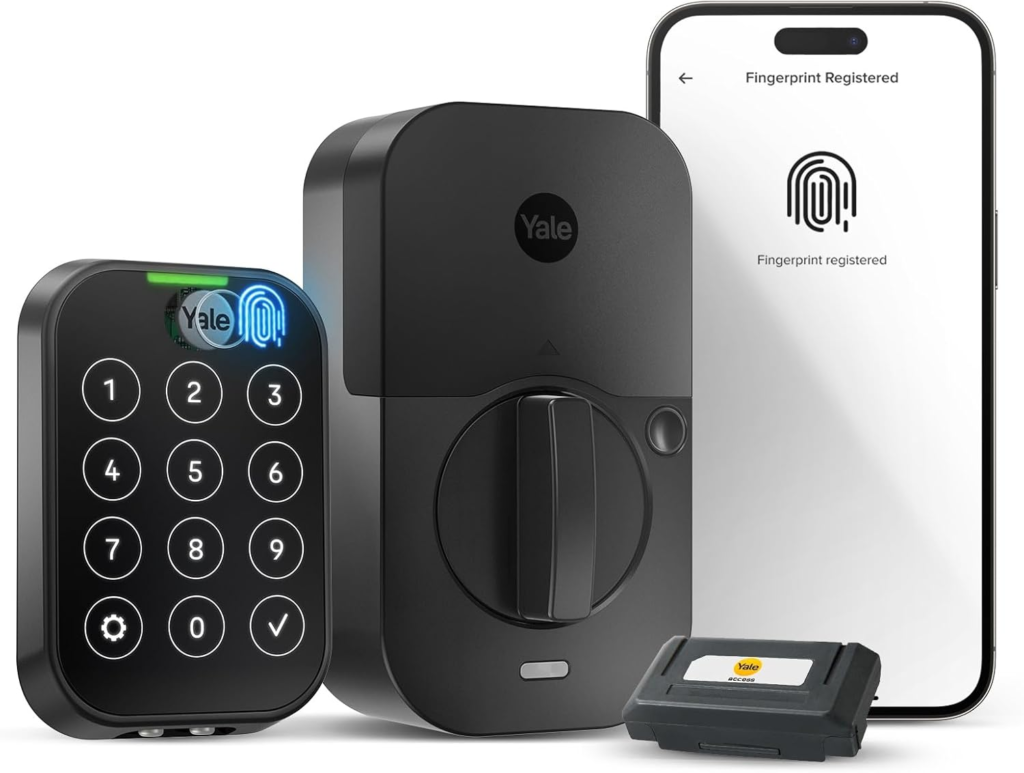
8. Smart Plugs: Smart plugs transform ordinary appliances into smart devices. By controlling power remotely, you can manage energy consumption and set schedules for devices.
CLICK HERE FOR SMART PLUGS
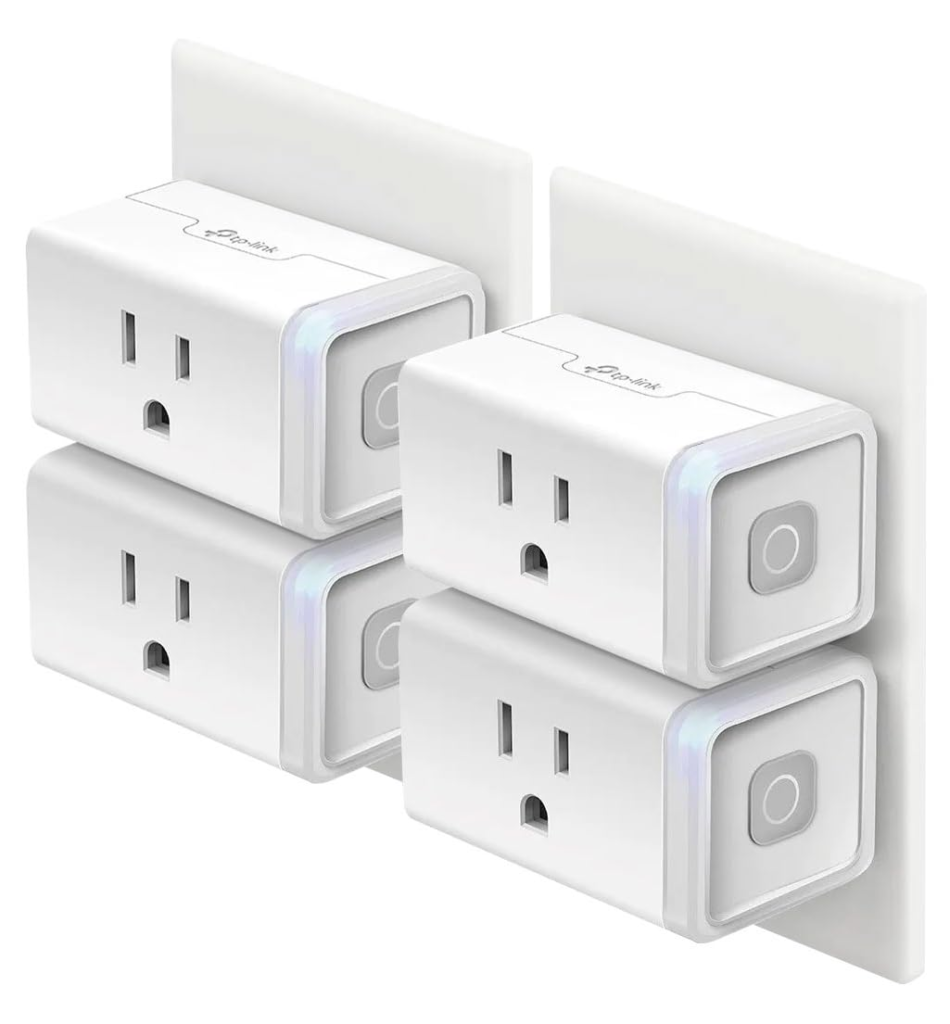
9. Smart Appliances: From refrigerators that monitor food freshness to washing machines that can be controlled remotely, smart appliances enhance convenience. They often feature energy-efficient technology, providing not only ease but also lower energy costs.
CLICK HERE FOR SMART APPLIANCES DEALS

10. Energy-Efficient Smart Devices: Incorporating energy-efficient smart devices into your home not only reduces your carbon footprint but also optimizes your energy usage. This can lead to significant savings on your utility bills. CLICK HERE FOR A SERIES OF ENERGY-EFFICIENT SMART DEVICES
Each of these devices plays a crucial role in improving convenience, security, and efficiency in a modern home, collectively contributing to a cohesive and advanced living experience.
Integrating Smart Devices into Your Home
Integrating smart devices into your home can create a cohesive and efficient ecosystem that enhances your living experience. When considering how smart devices enhance home security and other aspects of home automation, it is essential to choose compatible devices that can work harmoniously within your existing setup. Begin by assessing your current technological infrastructure and identifying areas that could benefit from enhancements, such as security, energy efficiency, and convenience.
Setting up a smart hub acts as the brain of your smart home, enabling seamless communication between various devices. A smart hub can connect and manage multiple devices from different manufacturers, ensuring that they work together effectively. When selecting a hub, ensure it supports the protocol that your devices utilize, such as Zigbee, Z-Wave, or Wi-Fi. Many hubs also come with compatibility for voice assistants, allowing for greater control and automation options.
Creating automation for different tasks within your smart home is an excellent way to streamline your daily routine. For example, you can automate your smart lights to turn on at sunset or schedule your thermostat to adjust based on your daily habits. Utilize smart home apps that allow you to set up scenes that include multiple devices working together upon a single command. These scenes can improve energy efficiency, as energy-efficient smart devices can be programmed to operate only when necessary, further reducing your utility bills.
Voice assistants enhance the futuristic experience by providing hands-free control of your smart devices. By using natural language commands, you can control lighting, adjust temperatures, and secure your home with simple verbal instructions. To maximize the effectiveness of your smart home setup, consider the layout and placement of devices to ensure optimal functionality. By following these tips for choosing smart home gadgets, you will achieve a fully integrated and efficient smart home environment.
The Future of Smart Homes
The realm of smart homes is continually evolving, driven by advancements in technology and shifts in consumer preferences. As we look to the future, several trends are emerging that will transform the way we interact with our living environments. Notably, the integration of artificial intelligence (AI) and machine learning into smart home devices is set to enhance their functionalities significantly. These technologies can enable devices to learn from user behavior, thereby providing personalized experiences that cater to individual needs, such as adjusting lighting and temperature automatically based on preferences.
Moreover, the increasing reliance on data analytics is expected to shape the development of smart home gadgets. By harnessing data collected from connected devices, homeowners can gain valuable insights into their energy consumption, security patterns, and overall comfort. This real-time information is crucial for making informed decisions about how to optimize their homes, leading to improved energy efficiency and cost savings. Consequently, energy-efficient smart devices are likely to gain prominence, with manufacturers prioritizing sustainable solutions that align with environmental goals.
However, alongside these advancements, potential challenges such as cybersecurity risks and privacy concerns must be addressed. As homes become more interconnected, the vulnerability to hacking incidents escalates. It becomes imperative for consumers to be educated on the importance of securing their networks and choosing reputable products. Moreover, transparency in data collection practices can help mitigate privacy concerns, allowing consumers to retain control over their information.
In conclusion, the future of smart homes promises exciting innovations with the potential to enhance home security, comfort, and efficiency. As advancements in technology continue to unfold, consumers can prepare for the transformative impact of smart home devices by staying informed about emerging trends and adopting best practices for safety and privacy.
CLICK HERE FOR SMART HOME DEVICES

